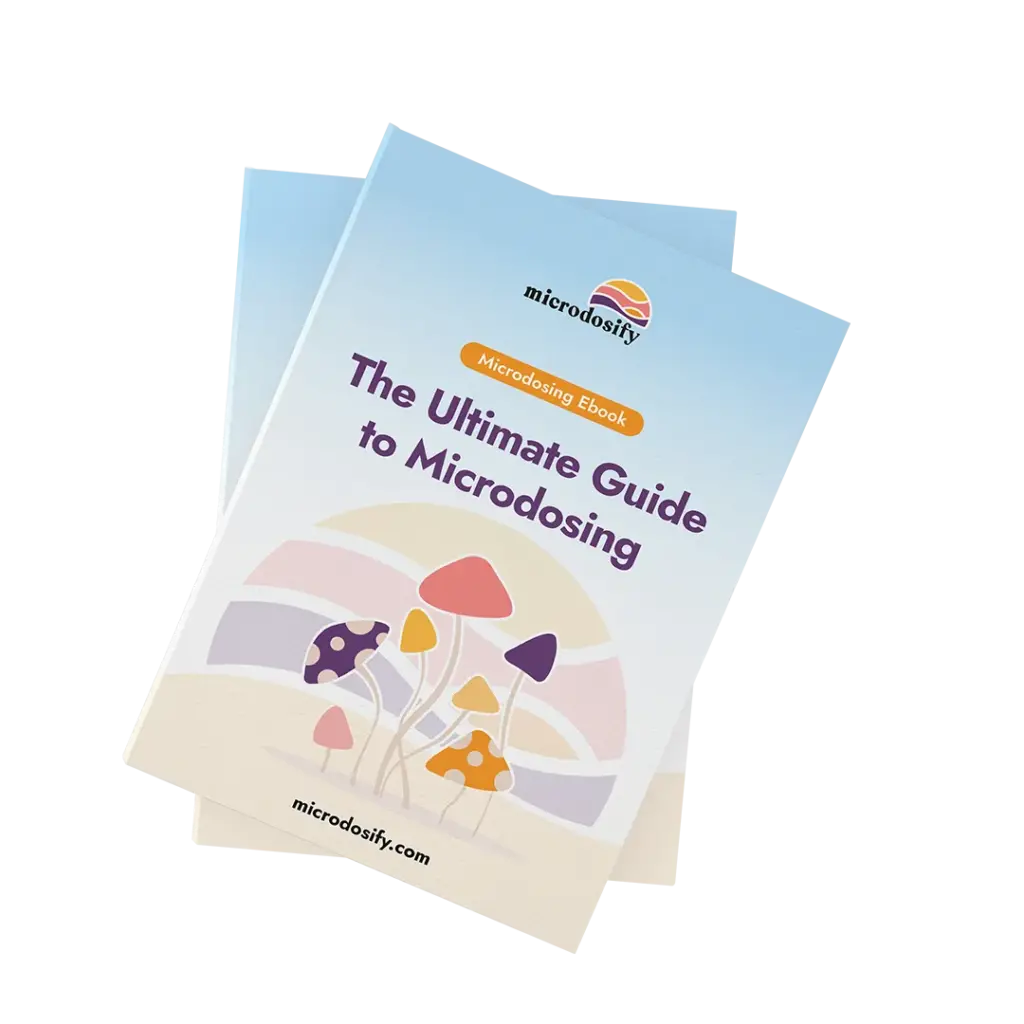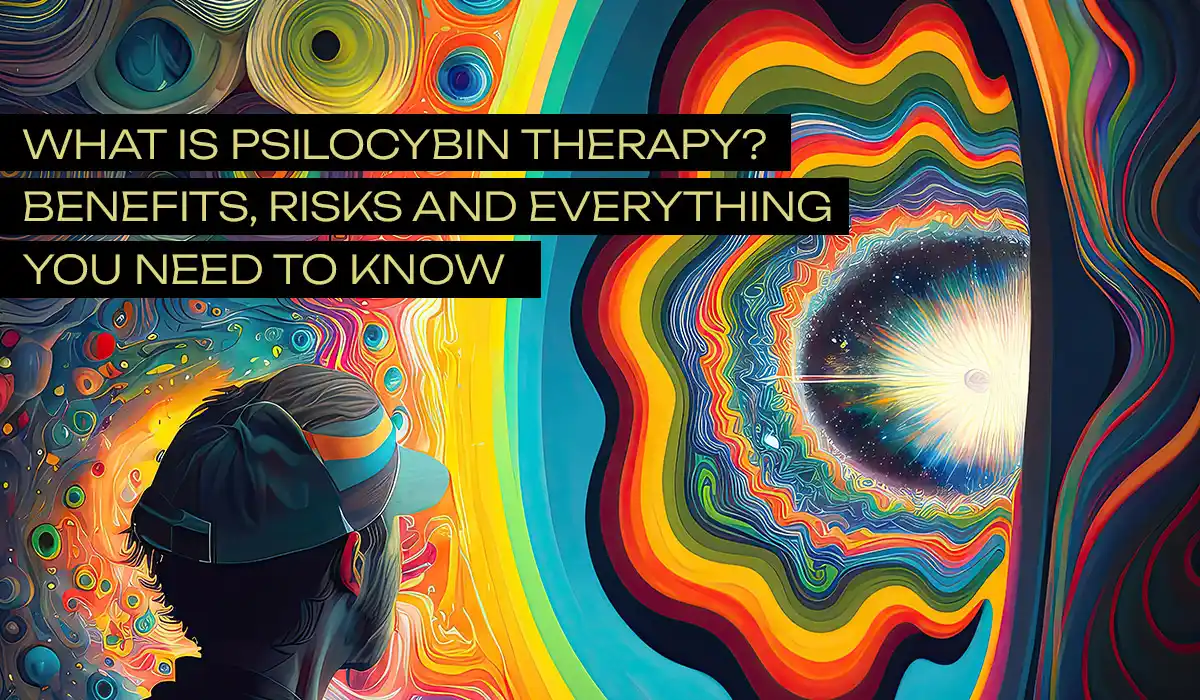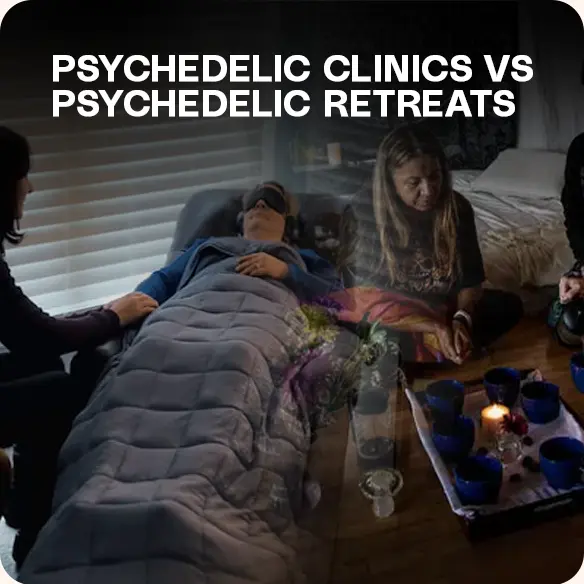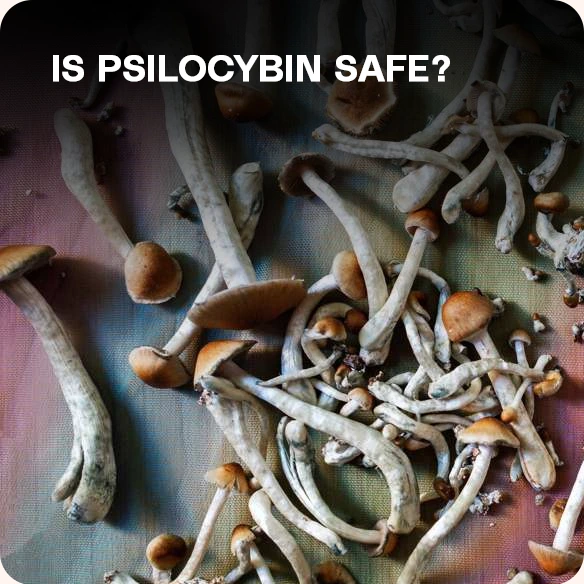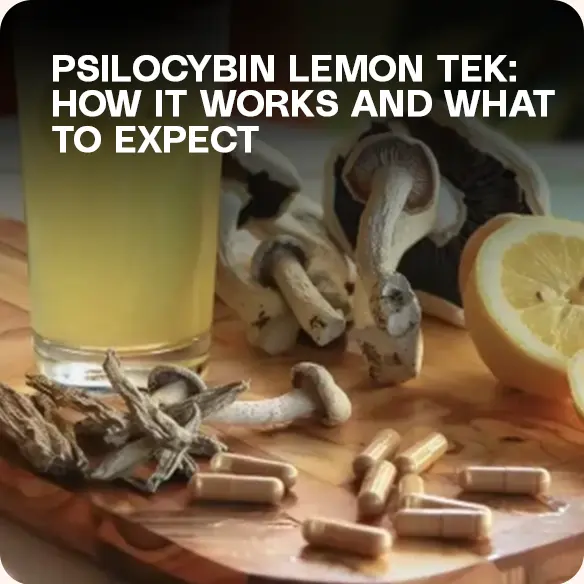Psilocybin therapy is gaining attention as a groundbreaking approach to mental health treatment, particularly for conditions like major depression and treatment-resistant depression.
This article explores the rich history of psilocybin therapy, how it works, and the structured process of a typical therapy session.
We discuss the ongoing research, the range of conditions it can address, its benefits and risks, and the legal landscape surrounding this innovative treatment.
Key Takeaways:
- Psilocybin therapy has been shown to be effective in treating major depression and treatment-resistant depression.
- Emerging research suggests psilocybin therapy may also be useful in treating alcohol use disorder, smoking cessation, anorexia, and existential distress in dying patients.
- Psilocybin therapy is currently being researched for its potential benefits in mental health treatment, but the legal considerations and potential risks should also be taken into account.
What is Psilocybin Therapy?
Psilocybin therapy is a holistic approach to mental health treatment that uses psilocybin, a naturally occurring psychedelic compound found in magic mushrooms, to facilitate therapeutic experiences for individuals suffering from various mental health disorders, including major depression and treatment-resistant depression.
This type of therapy has gained attention in recent years due to its promising clinical trial results, highlighting its potential benefits for users seeking alternative treatment options beyond traditional medication.
History of Psilocybin Therapy
The history of psilocybin therapy traces its roots back to ancient Mesoamerican civilizations, including the Olmec, Zapotec, Maya, and Aztec, who utilized psilocybin mushrooms for spiritual and healing practices, laying the groundwork for modern psychedelic research and therapy.
This cultural significance is profound, as these societies viewed psilocybin not merely as a substance but as a way to connect with the divine and facilitate mental clarity.
Fast forward to the 20th century, and the field of psychopharmacology began to explore these powerful fungi more scientifically. Pioneering researchers like Albert Hofmann were instrumental in expanding our understanding of psychedelics, revealing their potential therapeutic benefits.
Initial studies indicated that substances like psilocybin could significantly soothe conditions such as depression and anxiety.
- In recent decades, interest in psychedelics has surged again, marking a new era in therapeutic exploration.
- Contemporary studies are being conducted across various institutions, emphasizing safety and efficacy.
This revival indicates a shifting perspective towards integrating these naturally occurring substances into mental health treatment methods, bridging ancient wisdom with modern science.
How Does Psilocybin Therapy Work?
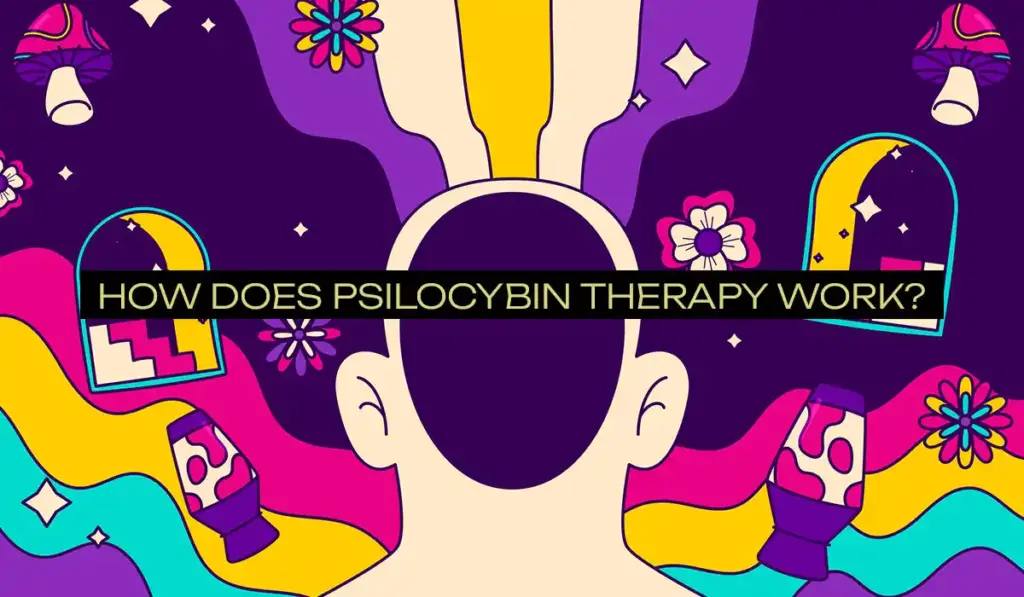
Psilocybin therapy operates through the interaction between psilocybin and serotonin receptors in the brain, particularly the 5-HT2A receptor, resulting in profound changes in perception, cognition, and emotional processing, which can lead to therapeutic outcomes for individuals dealing with mental illness, including depression and anxiety.
What is the Process of a Psilocybin Therapy Session?
A typical psilocybin therapy session involves a carefully structured process that includes a pre-session interview, administering psilocybin in a supportive setting, and a post-session integration meeting, all designed to create a safe space for users to explore their inner thoughts and emotions.
During the psilocybin therapy session, participants find themselves in a warm and inviting atmosphere precisely curated to stimulate comfort and openness.
The pre-session interview serves as a foundation not just for understanding individual needs but also for establishing trust between the user and the therapist.
This initial conversation allows the therapist to tailor the experience, ensuring that it aligns with the user’s personal history and therapeutic goals. Once the session starts, psilocybin is undertaken with maximum care, allowing participants to embark on a journey of self-discovery.
- The role of the guide during the session is crucial, as they provide reassurance and support while users navigate their emotional and psychological landscapes.
- Throughout the experience, the therapist maintains a calm and grounding presence, essential for enabling users to confront and process deep-seated emotions.
- Following the session, integration meetings become vital, allowing users to discuss their experiences, clarify insights gained, and reinforce positive changes.
In doing so, users not only reflect on their journey but also develop strategies to incorporate their understanding into everyday life, ultimately improving their ongoing path toward well-being.
How Much Does Psilocybin Therapy Cost?
The cost of psilocybin therapy can vary significantly depending on the provider, location, and specific treatment protocols, often ranging from several hundred to several thousand dollars per session, raising questions about accessibility for those seeking this holistic treatment for mental health issues.
Various elements can influence this pricing structure considerably.
For instance, the credentials and experience of the practitioner, who may have undergone extensive training in the use of psychedelics for therapeutic purposes, can drive up costs.
Geographic location plays a role, as urban centers generally have higher living expenses, which in turn may reflect in the fees charged.
The duration of each session typically affects the overall cost; longer sessions are likely to incur higher charges due to the increased time and resources required.
- Insurance coverage for psilocybin therapy remains inconsistent, often dependent on whether the treatment is addressed as an experimental procedure in the context of mental health support.
- Thus, accessibility profoundly hinges on financial capability, risking exclusion for some individuals who could most benefit from this innovative therapeutic approach.
This ongoing conversation about affordability indicates a pressing need for policy shifts to bolster access to these holistic treatments.
What Research is Being Conducted on Psilocybin Therapy?
Current research on psilocybin therapy is expanding rapidly, with numerous clinical trials underway exploring its efficacy for various mental health conditions, including major depression, OCD, and alcohol use disorder, led by institutions like Johns Hopkins University and Usona Institute, and seeking potential FDA approval for therapeutic use.
What Conditions Can Be Treated with Psilocybin Therapy?
Psilocybin therapy has shown potential in treating a variety of conditions, particularly major depression and treatment-resistant depression, while studies also suggest its usefulness in addressing anxiety disorders, alcohol addiction, nicotine addiction, and existential distress among dying patients, marking a significant advancement in mental health treatment options.
Major Depression
Psilocybin has emerged as a promising treatment for major depression, with clinical trials showing significant improvements in mood and emotional well-being among participants after just a few sessions of psilocybin therapy.
This experimental therapy has shown remarkable potential in reshaping the landscape of mental health treatment, particularly for those who have not found relief from traditional methods.
Many individuals suffering from major depression often experience a limited response to conventional antidepressants, which typically take weeks to show effects.
In contrast, the rapid impact of psilocybin therapy can lead to profound shifts in outlook and mood within just a few days.
Recent studies suggest that psilocybin helps facilitate meaningful emotional breakthroughs, as it promotes neuroplasticity and fosters novel connections in the brain.
- This unique mechanism may contribute to longer-lasting effects compared to standard medications.
- The therapeutic context in which psilocybin is administered plays a crucial role, offering a safe environment for exploring profound emotional and psychological insights.
Such differences underscore a potential paradigm shift in how major depression is approached and treated, making a case for more research and wider acceptance of this innovative therapy.
Treatment-Resistant Depression
For individuals suffering from treatment-resistant depression, psilocybin therapy offers hope, with research indicating that it may be effective in providing relief when traditional medications have failed, making it an alternative for those stuck in a cycle of chronic mental illness.
This form of therapy not only addresses the biochemical aspects of depression but also targets the psychological layers that often contribute to a cycle of negative thought patterns.
Many people with this form of depression find themselves trapped in a web of hopelessness where conventional treatments prove ineffective.
Studies conducted by institutions, including Johns Hopkins University, have demonstrated that psilocybin can significantly reduce depressive symptoms in patients who have not responded to standard treatments.
- One such study found that nearly 70% of participants experienced an improvement in their mood and outlook after just a few sessions.
- Real-life success stories, with many individuals reporting experiences that allow them to break free from the grips of despair.
With ongoing research and clinical trials, the potential for psilocybin therapy to become a mainstream treatment option offers renewed optimism for those who have long battled this debilitating condition.
Alcohol Addiction
Recent research indicates that psilocybin therapy may be beneficial for individuals struggling with alcohol use disorder, showing promising results in reducing cravings and promoting abstinence among participants in clinical trials.
As the therapeutic effects of psilocybin are explored, several mechanisms have been identified that may contribute to its efficacy in overcoming addiction:
- Neuroplasticity: Psilocybin has been shown to stimulate neural connections, fostering an environment where patients can re-evaluate their relationship with alcohol.
- Enhanced Emotional Processing: Participants often report improved emotional regulation, allowing them to face underlying issues linked to their addiction.
- Altered Perception of Cravings: The altered state of consciousness induced by psilocybin can diminish the intensity of cravings, making it easier for individuals to resist the urge to drink.
By integrating these findings, researchers are paving the way for a new approach to treating alcohol use disorder that could transform countless lives.
Nicotine Addiction
Psilocybin has also been explored as a treatment for smoking cessation, with studies suggesting that it may help users break free from nicotine addiction through enhanced insightfulness and behavioral change following psychedelic experiences.
Research indicates that psilocybin therapy can yield significant success rates, particularly when combined with structured support systems.
A series of clinical trials have demonstrated that compared to traditional methods, those who undergo psilocybin-assisted therapy often display improved psychological resilience and a deeper understanding of their cravings.
Notably, the compound appears to foster a profound shift in perception towards smoking, enabling individuals to see it in a new light, thus diminishing their habitual response.
- Success rates for psilocybin therapy can reach upwards of 60%, markedly higher than conventional approaches.
- This therapy taps into psychological mechanisms such as increased mindfulness and emotional processing, crucial for long-term cessation.
- By integrating psilocybin therapy with existing cessation programs, individuals can receive holistic support that addresses both the physiological and psychological facets of addiction.
These findings suggest a promising avenue for enhancing cessation efforts, illustrating how innovative therapies can complement established treatment frameworks.
Anorexia
The potential application of psilocybin therapy for treating anorexia nervosa is gaining attention, with initial studies suggesting that it may improve body image perception and reduce cognitive rigidity associated with the disorder.
Recent investigations into this novel approach indicate that psilocybin has the ability to facilitate profound emotional experiences, which can be particularly beneficial for those grappling with this complex mental health issue. By helping individuals confront deep-seated feelings related to self-worth and physical appearance, the therapy could serve as a revolutionary step in anorexia treatment.
Following are some of the noteworthy implications of this promising therapy:
- Enhanced Self-Perception: By altering negative thought patterns, patients might develop a more accepting view of their bodies.
- Increased Emotional Regulation: The therapy may give the power to individuals to manage their emotions more effectively, reducing the compulsive behaviors often associated with anorexia.
- Broader Therapeutic Benefits: Initial findings suggest that psilocybin could be a viable part of a comprehensive treatment plan, complementing traditional therapies such as cognitive-behavioral therapy.
Understanding how psilocybin therapy could change lives, particularly for those who feel trapped in the cycles of anorexia, opens the door to innovative treatments that go beyond conventional methods.
Existential Distress in Dying Patients
Psilocybin therapy has shown promise in alleviating existential distress in dying patients, helping them confront fears associated with death and dying, ultimately leading to greater peace and acceptance in their final days.
Research indicates that the transformative effects of psilocybin can create a profound shift in perspective, which is particularly beneficial for those facing terminal illnesses. Studies have highlighted several key outcomes associated with this approach:
- Enhanced Emotional Well-Being: Participants often report increased emotional resilience and a reduction in anxiety when engaging with their mortality.
- Improved Quality of Life: Patients frequently express a renewed sense of purpose and connection to their loved ones.
- Long-Lasting Insight: Even after the treatment sessions, individuals keep valuable insights that aid in coping with the realities of their condition.
These findings suggest that psilocybin therapy not only offers immediate relief from distress but also fosters a deeper understanding and acceptance of life’s end, which can be a source of comfort during a daunting journey.
What are the Benefits of Psilocybin Therapy?
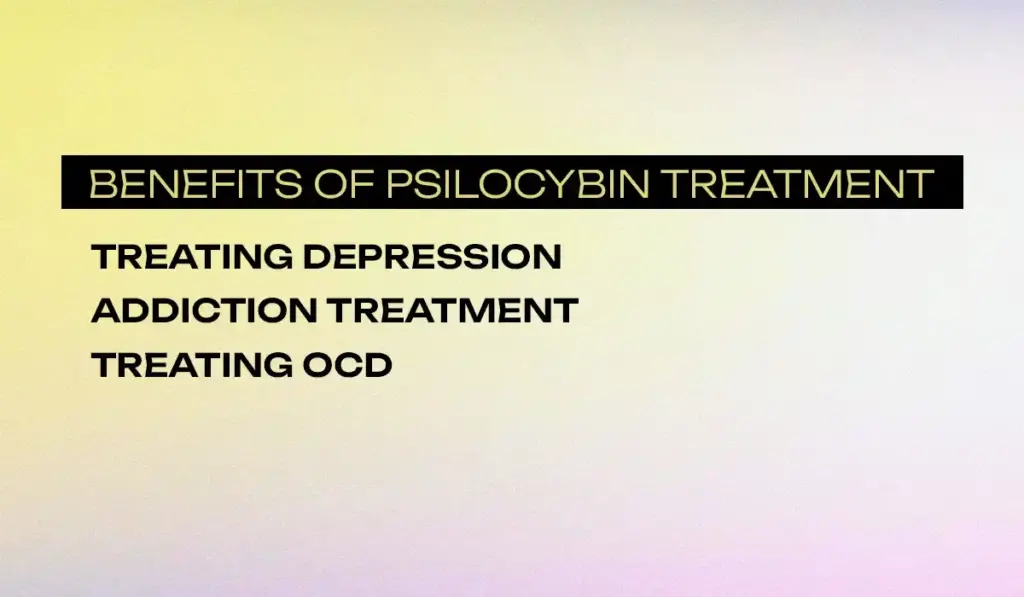
The benefits of psilocybin therapy extend beyond mere symptom relief, offering users profound insights, emotional breakthroughs, and a renewed sense of purpose, which can significantly enhance overall mental health and well-being.
What are the Risks of Psilocybin Therapy?
While psilocybin therapy has many potential benefits, it is important to consider the risks and side effects associated with its use, including psychological distress, challenging experiences, and the need for a safe environment to mitigate these risks during therapy sessions.
What are the Legal Considerations of Psilocybin Therapy?
The legal landscape surrounding psilocybin therapy is complex, with varying regulations across different jurisdictions and ongoing discussions regarding its potential FDA approval, necessitating a thorough understanding of the legal considerations before seeking treatment.
Frequently Asked Questions
What is psilocybin therapy?
Psilocybin therapy is a type of psychotherapy that utilizes the psychedelic compound psilocybin, found in certain types of mushrooms, to treat mental health conditions. It involves guided sessions with a trained therapist and can be used to treat depression, addiction, and other disorders.
How does psilocybin therapy work?
Psilocybin therapy works by altering the brain’s neural pathways and thought patterns, allowing individuals to gain new insights and perspectives on their thoughts and behaviors. It also helps to create a sense of connection and openness, allowing for deeper introspection and emotional healing.
Is psilocybin therapy legal?
Currently, psilocybin therapy is not legal in most countries. However, clinical trials and research are ongoing to explore its potential medical benefits. Some countries and states have decriminalized the use of psilocybin in therapeutic settings.
What mental health conditions can psilocybin therapy treat?
The most evidence for the effectiveness of psilocybin therapy is in treating major depression and treatment-resistant depression. However, there is also emerging research showing potential benefits for alcohol use disorder, smoking cessation, anorexia, and existential distress in dying patients.
How long does a psilocybin therapy session last?
A psilocybin therapy session can last anywhere from 4-8 hours, depending on the individual’s needs and the therapist’s approach. The session typically begins with preparation and setting intentions, followed by the administration of the psilocybin, and then a period of guided therapy and integration afterwards.
Is psilocybin therapy safe?
Psilocybin therapy is generally considered to be safe when conducted in a controlled and supervised setting with a trained therapist. However, there may be potential risks and side effects, such as anxiety, nausea, and psychological distress. It is important to undergo psilocybin therapy under the guidance of a trained professional.
